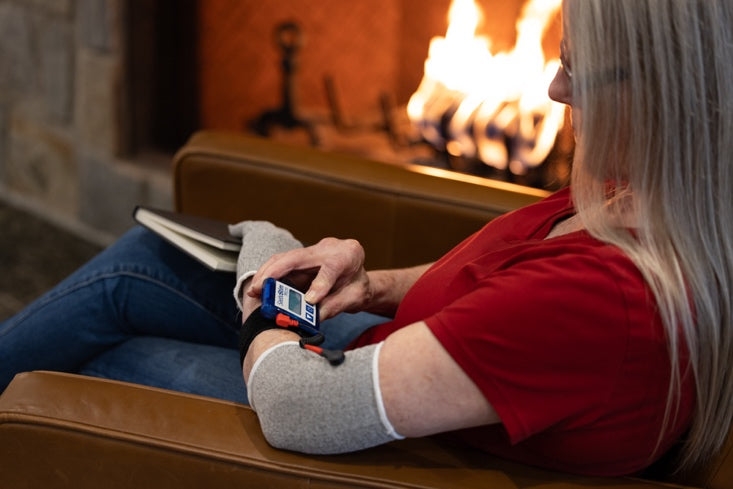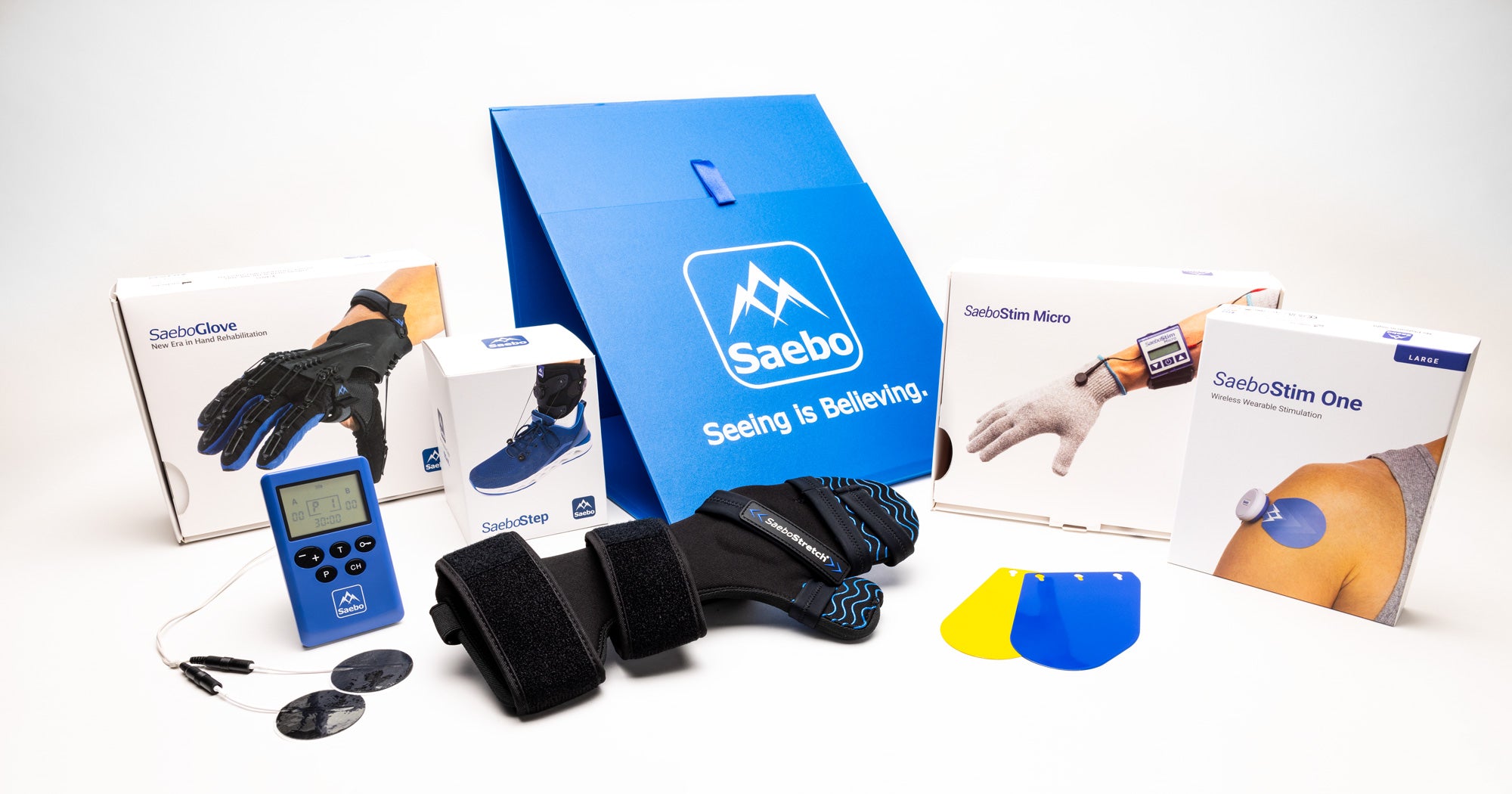A Simplified Guide To Rehabilitation Nursing For Strokes


A Simplified Guide To Rehabilitation Nursing For Strokes
Rehabilitation is a crucial part of stroke recovery, and rehabilitation nursing can be one of the best services to enlist in recovering from a stroke. This resource guide will cover everything you need to know about rehabilitation nursing for stroke recovery. From its main purpose and benefits, to the questions you need to ask before selecting a rehabilitation center, we’ve got you covered.
The Purpose of Rehabilitation Nurses
Rehabilitation nurses specialize in helping people with disabilities. They typically work at rehabilitation facilities, separate from hospitals where stroke patients receive primary care. They specialize in helping survivors with personal care issues as well as training patients on how to carry out the basic tasks of daily living.
These nurses help survivors manage common health problems, like diabetes and high blood pressure, that can lead stroke survivors to another stroke. They also educate survivors about routine health care, such as how to follow a medication schedule, how to care for the skin, how to move out of a bed and into a wheelchair.
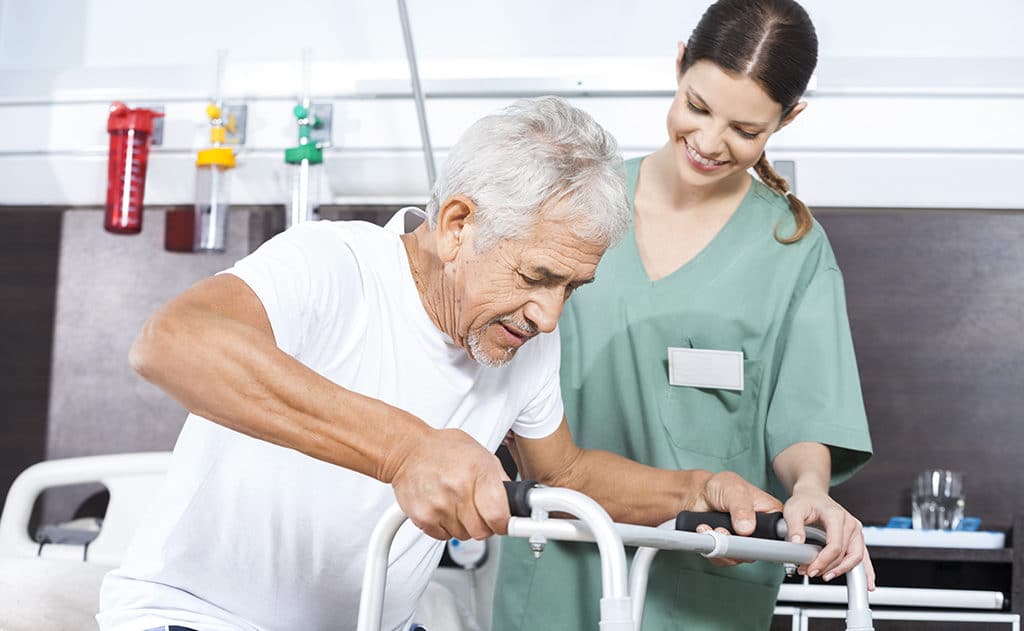
The Benefits of Rehabilitation Nursing
Being "hit" by a stroke is often an unexpected and terrifying experience. Survivors and their families need help to understand the implications that a stroke causes for their life, roles, identity, functioning, and more. Survivors often need to reinterpret their life situation and their way of life and rehabilitation nurses can assist with that journey.
Rehabilitation Nursing provides holistic, comprehensive, and compassionate care for patients with life-limiting conditions. They help survivors overcome their newfound physical limitations and help their patients adapt to a lifestyle of managing injury, disability, and chronic illness.
They are there to help support adaptive capabilities as well as promote achievable independence. They also educate patients and help them with adjustments that support their health. In short, rehabilitation nurses strive to assist stroke survivors in regaining a meaningful life.
When You Need Rehabilitation Nursing
Before you or your loved one is discharged from the hospital, you should talk to doctors and discharge planners about rehabilitation. They can help you choose the services or programs that best fit you or the stroke survivor’s needs.
Nursing rehab programs can be found in many different settings. Your doctors will usually suggest the most rigorous program a stroke patient can handle. They will decide the right program for a patient can based on their age, degree of disability and overall health.
If you see benefit with assistance in reinterpreting the patient's way of life, re-learning skills and making adjustments to you or your loved one’s health to prevent another stroke, then rehabilitation nursing services could be your answer. Just make sure that all involved parties are comfortable with the type of program you choose.
What Happens During Your Time With A Rehabilitation Nurse
A patient’s goals with rehabilitation nursing depend on the effects of the stroke, the patient’s capabilities before the stroke, and the stroke survivor's interests and ambition.
In the hospital and in nursing facility rehabilitation programs, you or your loved one may spend several hours a day on rehabilitation activities. The program staff work together with the stroke patient and the family, setting a series of rehabilitation goals that you can all work together to achieve. It’s important that these goals are realistic and attainable and that all parties are in agreeance. Be sure to communicate any specific goals to the program staff so that everyone understands the planned road to recovery.
Some of the time in a rehabilitation program is spent re-learning skills such as walking and speaking. At other times, you or your loved one will be learning new ways to complete everyday activities, such as using one hand for tasks that would usually be expected to require two hands. It is important to re-learn and keep up everyday skills for continued recovery and eventual independence.
Inpatient And Outpatient Programs
Some stroke rehab programs are inpatient programs and others are outpatient programs. Inpatient programs admit patients to stay overnight, and will assign them rooms to live in during treatment. Outpatient programs provide treatment without requiring that patient’s stay overnight. Outpatient programs allow a stroke survivor who lives at home a full range of services by visiting a hospital outpatient department, outpatient rehabilitation facility, or hospital day program.
One major consideration with any ongoing outpatient program is the need for transportation. If you choose an outpatient program, make sure someone is available to drive the patient to and from the program or that a service is scheduled to pick them up.
Rehabilitation nursing programs can differ drastically. Some rehabilitation nursing program provide a complete range of rehabilitation services while others provide limited care. Be sure to hunt down specific information about those available to you and your situation.
What To Look For In Your Rehabilitation Nursing Program
Many industries have a formal system of recognizing rehabilitation nursing organizations that meet standards of excellence. Look for Commission on Accreditation of Healthcare Organizations (CARF) & (JCAHO) Joint Commission on Accreditation of Healthcare Organizations to be sure that the program meets those standards.
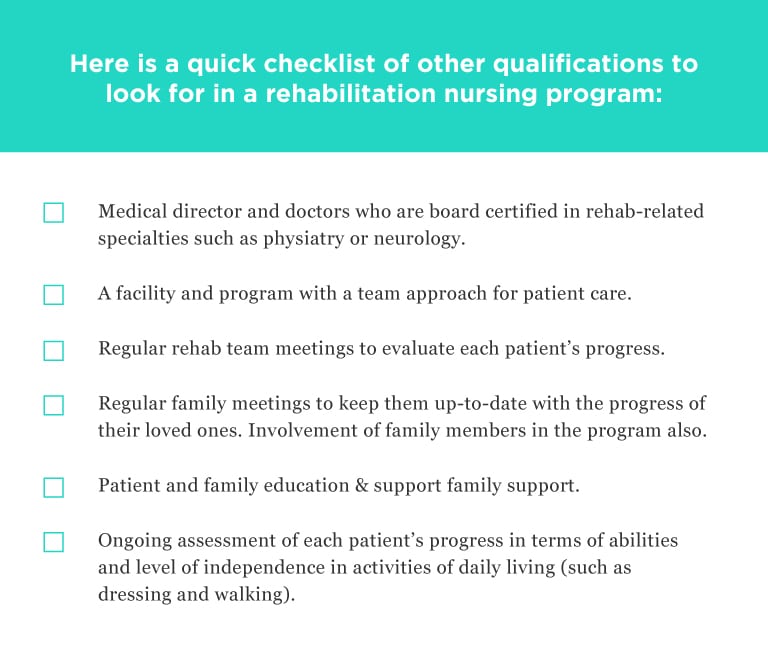
Questions To Ask Before You Choose
There are a few key questions to ask different rehabilitation nursing programs before considering choosing one:
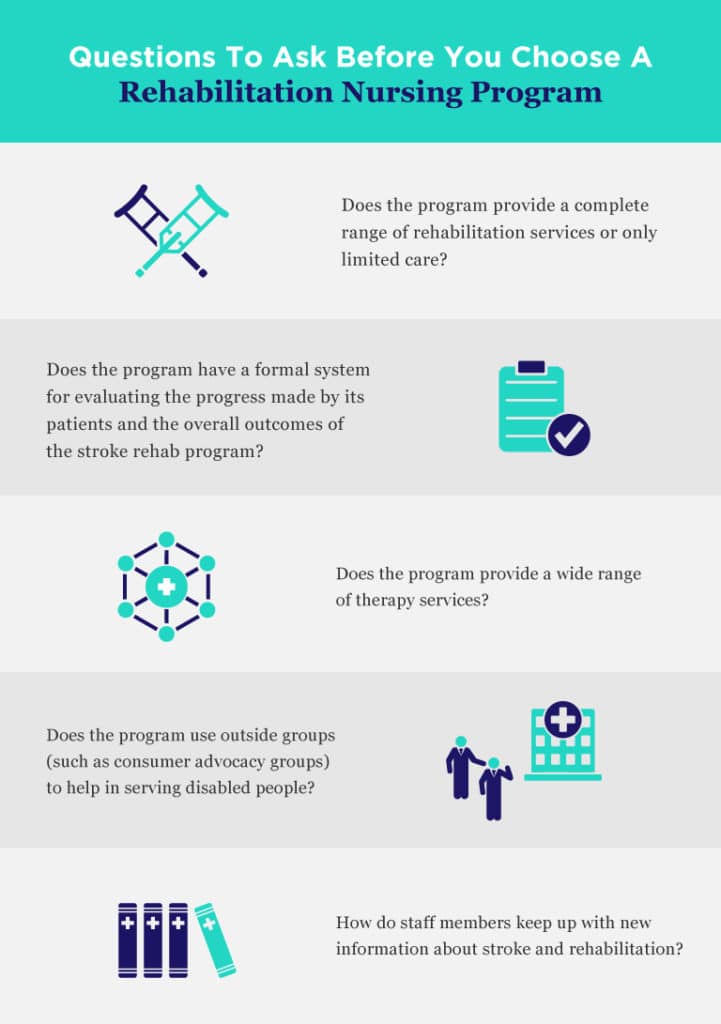
You also want to consider the hours and location before choosing your location. You want to feel comfortable in the location and with the nurses too.
Choose The Program and Facility That Is Best For You
Stroke rehabilitation nurses are a key component in the long recovery journey back to a “normal” life. Choosing the right program and setting the right goals are not decisions to be taken lightly. Over-communicate about your needs and feelings so you end up with the facility and program that is best for your situation. Remember that recovery may take longer than you’ve planned for. With a long road ahead, even small accomplishments are big wins. Get the right “teammates” on your side and celebrate each and every one of those wins.
____________________________________________
Whether you are a caregiver, occupational therapist or even a stroke survivor yourself, Saebo provides stroke survivors young and old with access to transformative, life-changing products. We pride ourselves on providing affordable, easily accessible, and cutting-edge solutions to people suffering from impaired mobility and function. We have several products to help with the stroke recovery and rehabilitation process. From the SaeboFlex, which allows clients to incorporate their hand functionally in therapy or at home, to the SaeboMAS, an unweighting device used to assist the arm during daily living tasks and exercise training, we are commitment to helping create innovative products for stroke recovery. Check out all of our product offerings or let us help you find which product is right for you.
All content provided on this blog is for informational purposes only and is not intended to be a substitute for professional medical advice, diagnosis, or treatment. Always seek the advice of your physician or other qualified health provider with any questions you may have regarding a medical condition. If you think you may have a medical emergency, call your doctor or 911 immediately. Reliance on any information provided by the Saebo website is solely at your own risk.
All content provided on this blog is for informational purposes only and is not intended to be a substitute for professional medical advice, diagnosis, or treatment. Always seek the advice of your physician or other qualified health providers with any questions you may have regarding a medical condition. If you think you may have a medical emergency, call your doctor or 911 immediately. Reliance on any information provided by the Saebo website is solely at your own risk.

